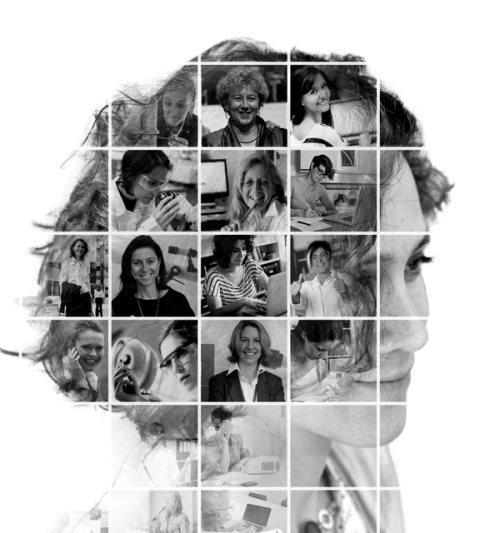Women's rights are human rights - EU speaks up for women's rights at the Human Rights Council

Gender equality and violence and discrimination against women are among the issues featuring strongly at the thirty-eighth session of the Human Rights Council. The Council heard from the Special Rapporteur on violence against women and the Working Group on the issue of discrimination against women in law and in practice; it discussed the High Commissioner’s report on engaging men and boys in achieving gender equality as a way to eliminate violence against women; and held its annual full-day discussion on the human rights of women which focused on digital spaces and access to information and communication technologies.
https://twitter.com/EU_UNGeneva/status/1008627212248080384
Ambassador Mara Marinaki, the European External Action Service's Principal Advisor on Gender and on the implementation of UNSCR 1325, represented the EU at the annual full-day discussion on the human rights of women, which focussed on advancing women's rights through access and participation in information and communication technologies (ICTs).
https://twitter.com/EU_UNGeneva/status/1009715581543747585
Access to technology, control of it, and the ability to create and shape it in the digital age are more and more intertwined with the protection and promotion of human rights including women's and girls' rights. New media, either directly or indirectly, contribute to increasing women's and girls' capacity, empowerment, leadership, inclusion and economic and political participation. They can be an enabling factor to strengthen women's economic independence, to end discrimination and violence against women and girls, and to ensure women's full and equal participation in all spheres of society and in all decision-making processes, including conflict prevention, peace-making and peace-building. "Unfortunately, the gender digital divide persists and women and girls still have limited access to and use of information and communication technologies. Addressing this must be a matter of priority. Women's and girls' access to the internet can also increase their political participation, freedom of expression and access to services and information," said Ambassador Marinaki at the Council on behalf of the EU.
The Council also discussed the impact of online violence on women human rights defenders. Online spaces provide key channels for inclusion and activism. Online tools facilitate women human rights defenders to spread their human rights-related messages. However, the online world is also a "mirror" of the offline world, reflecting both positive and negative trends. Women and girls, far too often encounter misogyny, marginalisation, discrimination, harassment and violence online. Digital technologies are increasingly used against them to install fear and isolation and thus make the work of women human rights defenders even harder. "Women human rights defenders often face double exposure: they are threatened and abused not only because they are human rights defenders, but also for being women. They receive defamatory comments and slanders about their role as women, mothers, daughters, their looks, and their sexual orientation and beyond. They face hatred, threats, harassment, intimidation and incitement to violence, often of sexual nature," said the EU in its statement at the Human Rights Council.
https://twitter.com/EU_UNGeneva/status/1009791441575534592
The EU also engaged in a dialogue with the Special Rapporteur on violence against women, Ms. Šimonović, who focussed her report on online violence against women and girls from a human rights perspective. Despite the empowering potential of Information and Communication Technologies (ICTs), online and ICT-facilitated forms of violence against women and girls have become increasingly common. This violence is a barrier to many girls’ utilising technology safely and confidently, including in pursuit of quality education.
Research conducted by the EU Fundamental Rights Agency shows that 1 in 10 women in Europe have already experienced some form of cyber violence since the age of 15. This is a phenomenon that ranges from cyber stalking, bullying and harassment to hate speech.
"We recognise the linkages between physical, sexual and psychological violence and their roots in gender inequality. Women are disproportionally receiving online threats, generally of a misogynistic nature, often sexualized and specifically gendered, which has a direct impact on their safety and future online activities. Women and girls have the same rights online as they do offline, and we must ensure these are protected and enjoyed across digital and physical spaces," said the EU in its statement.
The Human Rights Council also held an interactive dialogue with Ivana Radačić, Chair-Rapporteur of the Working Group on the issue of discrimination against women in law and in practice. Ms. Radaèiæ said that rising authoritarianism in political governance, economic crises and rocketing inequality as well as politicization of religions, posed considerable challenges to securing substantive gender equality. No country in the world had successfully eliminated discrimination against women or achieved full equality, she said and urged the protection of gains from the past and urgently advancing women’s rights. Practices such as polygamy, child marriage, female genital mutilation and “honour” killings had no place in any society, and the voices of women human rights defenders must be heard. "The EU remains strongly concerned over alarming attempts to rollback full and equal enjoyment of human rights by women and girls. The interdependence of human rights cannot be overlooked when promoting gender equality: rights should be tackled comprehensively and not on a case by case basis." said the EU in its statement.
During her stay in Geneva Ambassador Marinaki also met with the High Commissioner for Human Rights, Zeid Ra'ad Al Hussein, as well as Representatives of UN Women and UNFPA in Geneva.
https://twitter.com/EU_UNGeneva/status/1010127036692787200
https://twitter.com/EU_UNGeneva/status/1010163503007662080
The EU Delegation also co-sponsored an event in the margins of the Human Rights Council on legal frameworks to end female genital mutilation and on girls in street situations.
https://twitter.com/EU_UNGeneva/status/1008980216176369664
